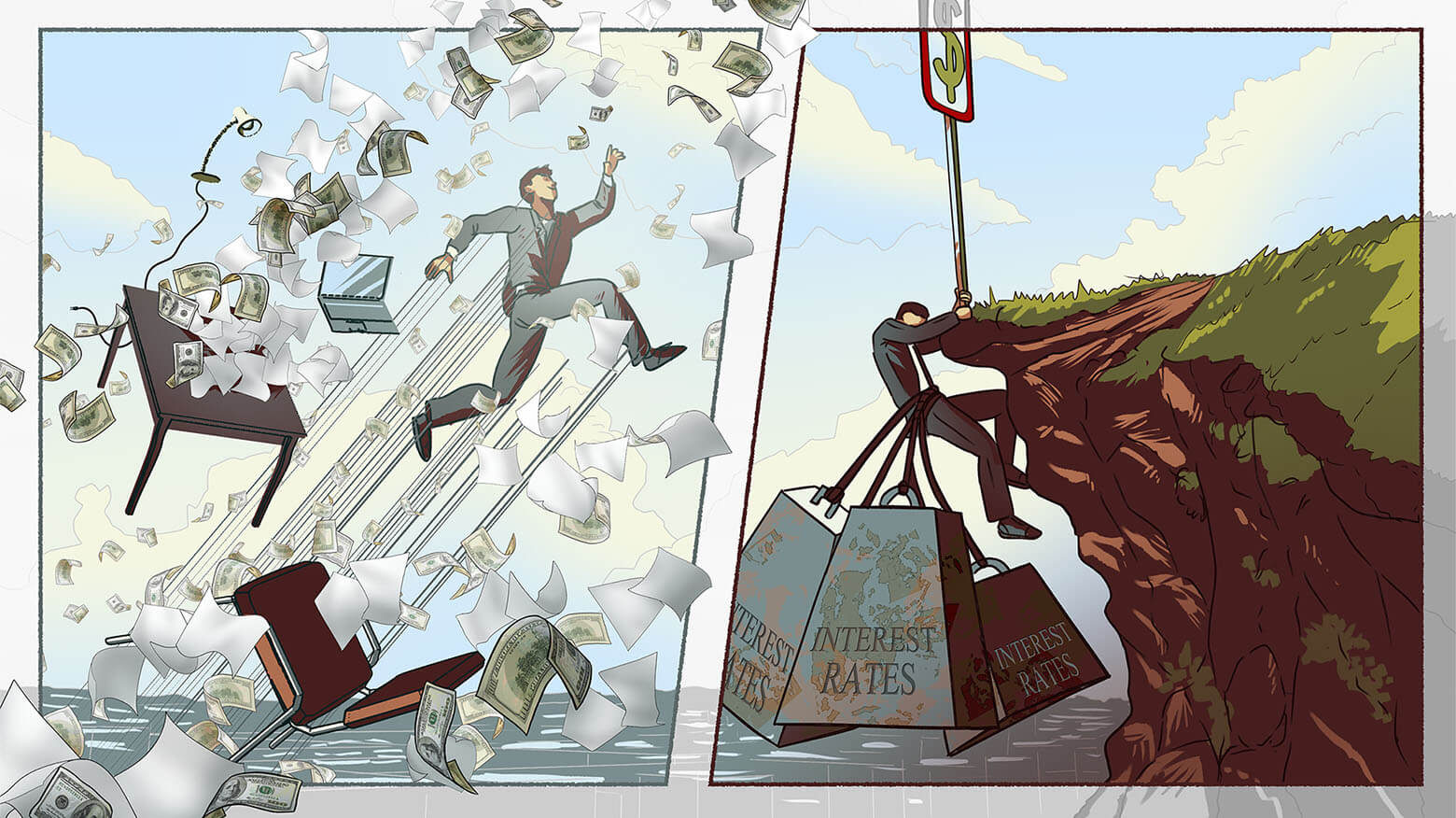The Good:
- The company increased the dividend 22% to $0.11 – resulting in a yield of 2.1%.
- CD will be buying close to 4% of its shares and it is all coming from free cash flows (not from leveraging the balance sheet). CD expects to continue doing that well into 2006. From the conference call: management believes there is a disconnect between improving fundamentals and CD’s stock price. They feel the equity is mispriced and that is why CD is aggressively buying back stock. I am all for stock buy backs (especially at these prices).
- The company is near completion of business realignment – it sold off several businesses to completely focus on the travel industry and real estate (where it believes it has competitive advantages).
- On organic basis, which is without pesticides and one time charges, revenue and EBITDA from continuing operations grew 8% and 9% respectively. That is a very respectable growth rate, and will be spiced up by the aforementioned share buy back.
- Real estate segment: growth in this segment was driven by 15% price increases and 9% growth in volume. This is something to worry about as higher interest rates should negatively impact both metrics in the future. Volume in this business is highly tied to GDP growth, where prices should correlate with level of interest rates.
- Hospitality service: 19% revenue growth was mostly driven from acquisition. RCI – the timeshare exchange business grew 6%, mostly driven by 5% increase in subscribers. RCI is the largest timeshare exchange provider with 70% market share. The segment’s size provides a competitive advantage as it has access to a larger portfolio of timeshares.
Revenue per available room increased 13%, which is very indicative of recent strength in the lodging sector. Also, weakness in this sector was somewhat seasonal, and its performance should improve in the later quarters.
Risk: this segment is fairly cyclical, thus weakness in the economy should have a somewhat negative impact. On the other hand, the weak dollar should be beneficial as it makes international (Europe especially) travel very expensive, encouraging domestic travel and bringing foreign tourists to the United States. - Time share resorts business – EBITDA comparisons were impacted by a reduction in upgrade sales. This segment still showed 8% organic (excluding charges) EBITDA growth in the quarter.
- Vehicle rentals – car rentals increased 9% due to 10% increase in volume (good), however, pricing declined 2% (not so good). This was a strategic decision to lower prices which resulted in higher volume. Growth in EBITDA was negatively impacted by an $8 million charge related to restructuring activities (I would like to know more about this charge). Without the charge EBITDA grew 8% in the quarter.
The car rental business is closely linked to air travel. The car rental business is also one that is fairly misunderstood by Wall Street as it is a lot less capital intensive than perceived and, if managed properly, could provide good returns. Cendant owns the Budget and Avis franchisees. Budget/Avis buy cars from General Motors (GM) and Ford (F) and have the right to sell cars back to manufacturers in nine months at predetermined prices. Thus they don’t have to worry about disposing used cars and used car prices at the time of disposal. In addition, this business doesn’t require a lot of upfront capital. Most of the car purchases are securitized where Budget/Avis has to put up 14% over funding capital.
The objective of this business is to manage rent yields, and this is where Cendant’s competitive advantage comes in. Avis is focusing on business customers, where Budget’s target market is cost conscious family travelers. Budget and Avis share the same fleet and the same parking garages at the airports. Combined, Budget and Avis should have better utilization rates from their car fleet (since Avis rents out more of their cars during the week and Budget rents mostly for the weekend). In addition, ownership of Cheaptickets and Orbitz provides Avis/Budget a significant distribution channel.
Note on automakers: Once automakers receive cars from Avis/Budget, they sell them to car dealers. Dealers make little money on selling new cars and make most of their money selling used cars. Sadly GM and Ford sell cars to car rental places basically at cost, unless they are able to renegotiate their contracts with their unions, they’ll keep doing this as it helps to bring a highly needed volume to cover their enormous fixed costs. - Travel distribution – results are skewed by recent acquisitions and charges. After making appropriate adjustments, revenue growth was flat, but EBITDA grew by 4%. This business was primarily of Galileo, where sales decreased 3% due to lower yields, however, Cheaptickets sales grew 43%. Galileo accounts for a very large portion of this segment.
Though the travel industry is growing at about the rate of the economy (at least volume wise), two factors are negatively impacting sales growth in this segment: first, lower prices, and second, sales to consumers that are made directly by hotel operators or airlines don’t go through Galileo system.
Galileo is likely to show very little top line growth, most of the growth in the bottom line should come from cutting costs. That been said, organic growth numbers did not include explosive growth that comes from Orbitz (that was recently purchased by Cendant), thus growth going forward should likely accelerate. Cheaptickets.com’s back office processing has been folded into Orbitz – this should benefit margins in the long run. Gulliver’s acquisition that Cendant made recently makes a lot of sense. Gulliver has a relationship with 20,000 hotels around the world. This incredible network will become even more valuable once it’s plugged into the Cheaptickets and Orbitz distribution channels.
The Bad & the Ugly
- This quarter performance was riddled with charges, and that is probably part of the reason why CD is not a Wall Street darling at this point. The analysis will only get easier going forward as the company’s repositioning is almost complete. I am not a big fan of one time charges, but in this case most of the charges made sense. CD has spun off PHH and Wright Express in the current quarter, which resulted in impairment and restructuring charges. Also CD used the proceeds from those spin offs to make acquisitions in the travel segment.
The risk here is that these types of charges may allow the company to build reserves that it could use in the future to smooth earnings, though I don’t believe this is the case with CD. Though the company’s financials were complicated by the charges, its depth of disclosures is top notch. CD should be done with charges for awhile, unless it makes another acquisition.
Due to the change of composition of the business, CD projects that the bulk of cash flows to be earned in the second half of the year, which makes sense; travel and real estate are usually peaking during the summer months. To CD’s defense, they are providing a very clear guidance on revenue growth, which if achieved will be very impressive:
Real Estate Services 7.6-10.6%
Hospitality Services 11.9-17.5%
Timeshare Resorts 6.9-11.7%
Vehicle Rental 7.3-11.3%
Total Travel Content 8.1-13.6
Travel Distribution 45.3-51%
- The bottom line growth provided is distorted by the charges. However, it seems that margins are likely to expand due to massive operational leverage, thus earnings growth should be somewhat inline with sales growth or better.
With the exception of the Travel Distribution segment (where CD made several significant acquisitions dyring the last year) most of the top line growth will be organic. CD is entering into the ‘show me the money’ period, as investors want to see how the ‘new’ company is delivering on its promises.
Valuation: CD trades at about 10.7 times 2005 free cash flows and about 12.3 times 2005 earnings (backing out charges). Our discounted cash flow model suggests that it is grossly undervalued, pricing absolutely no growth in the future. Expected free cash flows are a little bit overstated since CD will not pay any taxes in 2005. However, even after adjusting for taxes the stock still appears to be cheap.
Quality: In the past, CD’s balance sheet was a little bit distorted because of the company’s mortgage originations business. Not anymore. At the end of the quarter, CD has about $3.5 billion of net corporate debt. Is that a lot of debt? No, CD can payoff all of its debt, if it wanted, from free cash flows in less than two years. At every segment where it operates, the company owns very strong franchises that have a top position in their respected industry.
Growth: Sales should grow 5-7% a year with plenty of operational leverage in this business. As a result, operating margins are poised to expand thus pushing net income growth toward around 10-12%. Any share buy backs (which the company intends to continue) will come as a bonus, elevating EPS growth further. Add to that a 2% dividend and CD should deliver a very nice total return.
Risks: Travel and real estate are cyclical businesses; though there is a solid base that will keep these businesses profitable even during a significant economic slow down. A deterioration in the economy, could impact CD’s growth.










0 comments